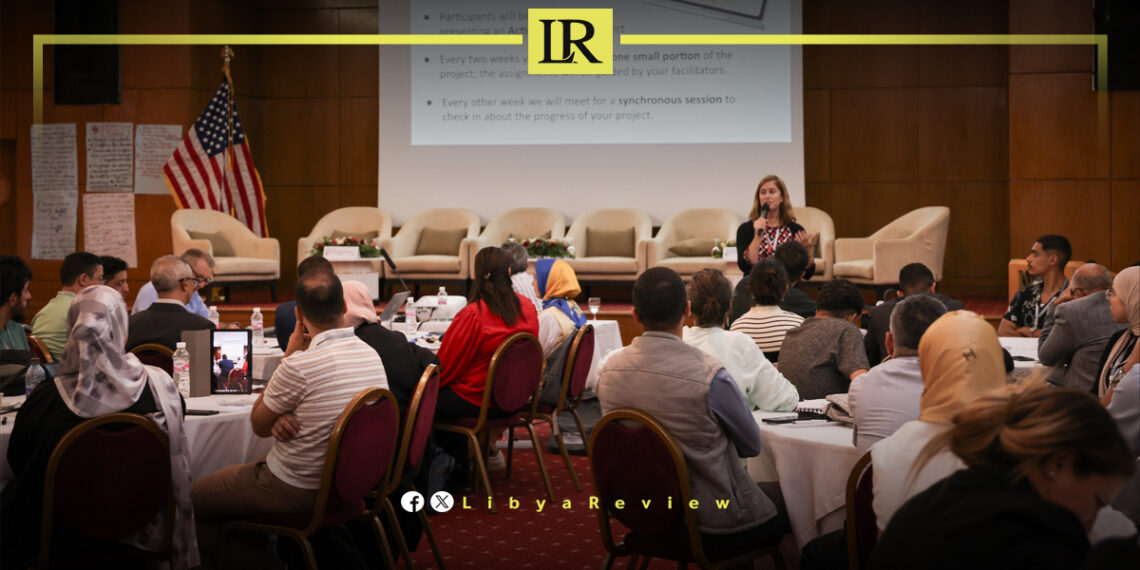The United States Embassy in Libya announced that it has funded the training of 20 Libyan English language teachers through a regional workshop aimed at enhancing modern teaching practices.
Deputy Chief of Mission at the US Embassy, Inga Himink, met with the Libyan participants following their participation in the Regional English Language Office (RELO) workshop, which was held in Tunisia with educators from Algeria, Morocco, and Tunisia.
According to the embassy, the initiative—fully funded by the US government—seeks to empower Libyan teachers by equipping them with innovative teaching strategies that can improve English language education across the region.
The embassy congratulated the Libyan teachers for their dedication to professional development and highlighted their role in strengthening English language learning in Libya. Officials stressed that such programs reflect Washington’s commitment to supporting education and youth empowerment in the country.
This initiative comes as part of broader US efforts to invest in Libya’s education sector, expand access to English language learning, and build stronger cultural and educational ties between Libyan communities and the international arena.
Libya has been in chaos since a NATO-backed uprising toppled longtime leader Muammar Gaddafi in 2011. The county has for years been split between rival administrations.
Libya’s economy, heavily reliant on oil, has suffered due to the ongoing conflict. The instability has led to fluctuations in oil production and prices, impacting the global oil market and Libya’s economy.
The conflict has led to a significant humanitarian crisis in Libya, with thousands of people killed, and many more displaced. Migrants and refugees using Libya as a transit point to Europe have also faced dire conditions.
The planned elections for December 2021 were delayed due to disagreements over election laws and the eligibility of certain candidates. This delay has raised concerns about the feasibility of a peaceful political transition.
Despite the ceasefire, security remains a significant concern with sporadic fighting and the presence of mercenaries and foreign fighters. The unification of the military and the removal of foreign forces are crucial challenges.


